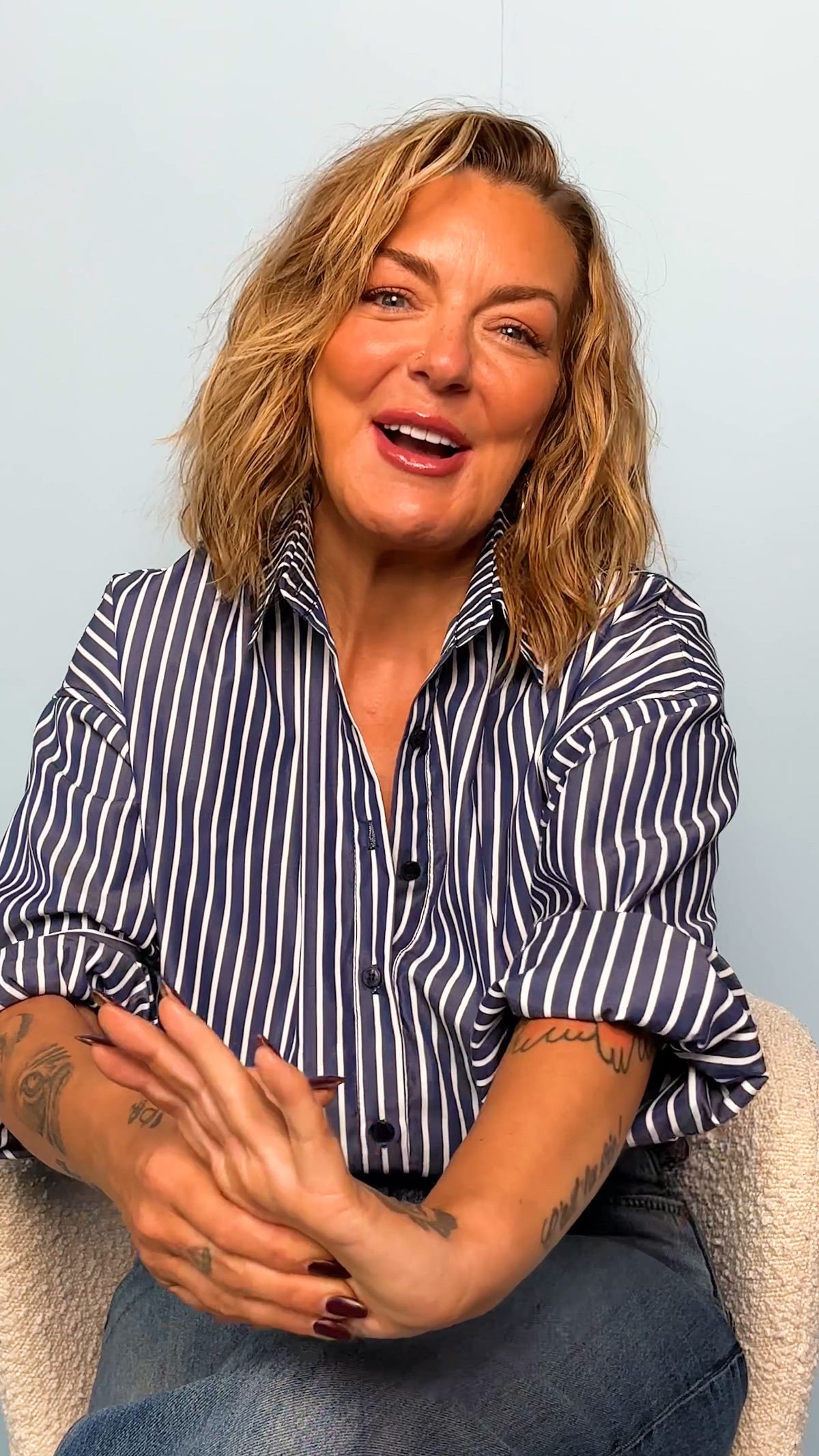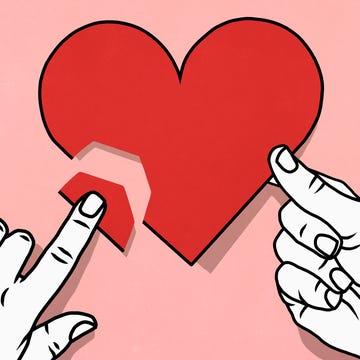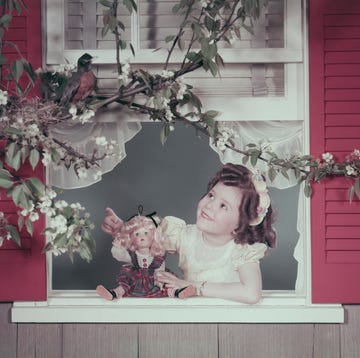Abby and Sophie had been friends for decades when their friendship fell apart. They had both been through a tough time: Abby was divorced the previous year, and Sophie’s mother had just died. Then Abby got an email. ‘Sophie wrote that I had let her down badly by not helping her through her grief and she felt so hurt that she had to end our friendship,’ she explains. Abby was shocked and upset: ‘I messaged her explaining that I was still dealing with fallout from the divorce, but I wanted to put things right. She didn’t even reply. It was so sudden and final.’
Not all friendships will end as dramatically as Abby and Sophie’s, but many do, and most of us have known what it’s like to lose a friend. We may drift apart when we outgrow the things that brought us together –the office, the school gates – and realise that without that glue, there’s not much common ground. A series of small hurts or resentment can build over time, a shift can occur in the friendship (such as a house move or other life change) or sometimes there’s a single issue or argument that causes a rupture we can’t repair.
Some of these endings hurt more than others, but they all hurt. It’s important to acknowledge that. Of all the losses of our adult lives, these broken friendships are the ones we’re least prepared for, and the ones we can expect the least support and understanding for.
‘I had a friend who talked to me for hours every day for months on end about my divorce,’ says Abby. ‘My sister came over twice a week to eat dinner with me, and women at work got me to socialise even when I was poor company.’ But when she told them about her breakup with Sophie? ‘Basically, nothing. A few expressed token sympathy, but moved on quickly. Broken friendship doesn’t count in the same way. And yet, honestly, the hurt was just as bad.’
‘I see this a lot with clients,’ says chartered psychologist Suzy Reading. ‘Female friendships in particular can be very deep, yet there’s no social or legal framework to recognise their importance, or help us navigate the terms of the relationship.’ Romantic couples are fairly clear on the expected give and take and will discuss core value and key issues such as fidelity, money or children. If things go wrong, there is – as Abby discovered – a legal acknowledgment and social support for the loss. But when it comes to friends, we somehow think it will ‘just work’. Friendship comes with high expectations, and no map to help us manage them: ‘We’re all making it up as we go along, and that leads to a lot of heartache.’
Great expectations:
Yet over the last few decades, friendship has grown to occupy a much more central position in our culture. From Friends to Fleabag, via Sex And The City and Bridesmaids, female friendships are increasingly given equal billing with family and partner ties. It can be a joy to watch, but these portrayals have also helped raise our expectations not only of what friendship could be, but what we think it should be.
No wonder we look at those films and decide that we’ll have what she’s having. We all want those great friendships, but my version of great may not be yours – and crucially, it may not be my friend’s either. ‘We never actually ask: what are your expectations or aspirations for this friendship?’ says Suzy. ‘We’d ask a potential life partner, but we think that our friends will just “get us” telepathically.’
We assume that our friends are on the same page as us, that they want and feel the same way. Which is a) ridiculous as soon as you think about it for a minute, and b) the number one thing that makes friendship so vulnerable. If we don’t know what our friend most needs from us, we’re always at risk of doing the wrong thing, or feeling as if the wrong thing has been done to us.
Research shows that women generally look for mutual investment, emotional intimacy and support in close friendships. But concepts such as ‘intimacy’ or ‘support’ – or even ‘mutual’ – are subjective. Clare fell out with her friend Grace for months when Grace delivered what she thought was some constructive feedback about Clare’s ‘abrasive manner’.
‘I often feel misunderstood by people, and she decided to tell me all the ways I’m just not likeable,’ says Clare. Grace told me that she honestly wanted to help Clare see that she sometimes came across in ways she didn’t intend, but what Clare heard was criticism, and what she needed was reassurance and empathy. The experience left them both feeling misunderstood and let down.
‘We’ve centred friendship more in our lives,’ agrees Rebecca Stambridge, a psychotherapist with a particular interest in friendships, ‘but to the point where we often idealise them.’ What we need to learn is that – surprise! – friendship is not really like the movies. And that’s okay. ‘We need to normalise some conflict as part of any good friendship. And we need a lot more honest conversations about the jealousies, insecurities and upsets that are parts of friendship we often find it hard to express.’
How to rebuild after a breakup:
We may break up with friends for all kinds of reasons, but the hurt we feel when it happens is universal – a hurt compounded by the fact that we can expect very little support, and we have no idea how to deal with the emotional fallout.
‘Begin by acknowledging your loss and allow yourself to grieve for it,’ says Suzy. ‘Don’t let anyone diminish it as “just a friendship”. Talking about what you’re feeling to someone who will listen properly – another friend or partner, or a therapist – can be really helpful.’
Rebecca’s clients will often say after friendship loss that they feel that their confidence has been shaken, that they can’t trust their judgement about people or that they must be a bad friend. ‘But a breakup is rarely the fault of one person,’ she says. She suggests that you look at the behaviour and personality of your former friend beyond your friendship. ‘Think about what else she’s been going through – are you taking the fall for other issues in her life? Or what is it in her personality that would make her behave like this?’ It’s important to realise that you’re only one part of this equation, and that someone who behaves cruelly or coldly at a difficult time is not the friend you though they were.
There’s also the risk that the breakup affects a wider friendship circle. When Sharon’s friendship with Lily broke down, she was dropped by the two other women in their friendship group. ‘Sharon was very much the alpha in that group, and there was an unspoken acknowledgment that if you were friends with me, you couldn’t be one of her trusted inner circle. They didn’t want to risk being frozen out by her.’
Losing other friends is a particularly brutal consequence of a friendship breakup, akin to what happens to some friendships after a divorce. Suzy often recommends that clients seek feedback from other friends and close relationships.‘Sometimes you need to balance out feelings of self-blame or rejection. Other people can reset your perspective and remind you that you’re valued and loved.’ Real healing can begin when you ask yourself what you can learn and gain from the breakup – what is the opportunity in the loss?
Two years on, Lily says she feel ‘liberated’ from her friendship with Sharon. ‘She can be very charming, but she uses that to encourage her friends to compete for her approval. Breaking free has made me less anxious and more authentically myself. My friendships feel easier and more equal now.’
Abby also spent a long time reflecting on her breakup with Sophie. ‘It made me really think about what kind of friends I want to have, and what kind of friend I want to be. And it made me much more appreciative of the friends I still have.’
Losing a friend is always hard, but remember that some friendships are meant to end. We’re meant to grow and change – it would be tragic if we didn’t – and not all of our relationships can or should survive that. Try to honour what you had, but accept that you need to move on in your life as the different and better person you’ve become.
How to build better friendships
The five-second friendship test
How do we know when we should try harder with a failing friendship or when we should let go? Ask yourself: are you mutually invested in the relationship and do you have shared values? If so, it’s worth fighting for. Does the friendship in general make you act or feel better or worse? If it’s the latter, it may be time to take a step back.
Invest in yourself
Do the things that make you happier, calmer and stronger. Pursue your interests, build your own resources. When we do this, we’re not looking to one friendship to solve all our problems and needs. (Self-Care For Tough Times by Suzy Reading is a great place to start)
Voice appreciation
Tell your friends the things you like and value about them. Notice things. Pass on good things that other people have said. Being a good friend is the best way to get a good friend.
Assume good intent
Your friend never calls you. You assume this means she doesn’t care about this friendship as much as you do. But maybe she feels awkward about making contact first. Or she’s bad at remembering to call but great at helping with work issues. Things don’t always mean what we make them mean, and ‘equality’ in friendship doesn’t mean we have to contribute the same things, just the same amount. Assume your friend has good intentions until you know otherwise.
Allow for ebb and flow
One of you gets a new job/gets divorced… life happens. Allow that there will be times when one of you is more distant. Not because they don’t value the friendship, but because the demands of their situation take them away for a while. Stay open, and offer support without demands.
*All names have been changed to protect identities













